
You are currently browsing the archives for the Uncategorized category.
Archives
Blogroll
|
Archive for the ‘Uncategorized’ Category
Thursday, June 10th, 2021
It’s been a while since I’ve updated this web page. There are a bunch of reasons for this, but mostly my neglect grew out of the frustration I felt about my publisher’s failure to support my Randoms novels. When the third book came out, I was sufficiently irritated that I didn’t want to spend the money to have my web designer add a new book to the site. That led to more neglect, and things became a bit run down.
But with a new book coming out, I’ve decided to spruce things up. I’ve had my designer do an under-the-hood update the site to make it easier to update, and while there are a few elements that need to be tweaked, I expect to have things where I want them over the next week or so.
I’ve also decided to get back to posting more regularly. I’m the sort of writer who requires input, which means I consume a lot of narrative. I’m going to try to make a habit of writing reviews of books, films, television shows, and any other pop culture that catches my interest. The first of these posts will be up soon.
Posted in Uncategorized | Comments Off on I’m Posting Something!
Thursday, August 4th, 2016
Anyone who’s read my novel Randoms has probably figured out that I’m a Star Trek fan. I love the franchise in (almost) all of its incarnations. I’ve seen every film and every episode of every television show ever produced. I’ve read a ton of novels and comics going back to when I was in middle school.
And as a fan, I can’t help but wish Star Trek would respect itself a little more. This is a long post, so let me give you my argument up front: Star Trek produces content that tells viewers, readers and gamers that it’s a second-tier property. It doesn’t act like it has greatness to offer, and, consequently, it is rarely great.
Let’s keep in mind that we’re talking about a hugely successful intellectual property, with its principal characters and ship designs recognizable to countless people all over the world. At the same time, it is, in my view, one of the most poorly — or even the most poorly — managed intellectual properties of its type. In light of the very good recent Star Trek film, and the franchise’s return to television next year, it seems like a good time to explore what has gone and wrong with Star Trek.
Comparing the cultural saturation with other comparable properties shows just what a lackluster job parent companies CBS and Paramount have done. Step into any Target and you’ll see how brands like Star Wars, Marvel, and D.C. have licensed their characters for toys, party products, clothing, and games. Star Wars, since being sold to Disney, is a brand on the rise, but it went a decade without a film (and decades without a watchable film), yet still managed to keep itself current through licensing. Marvel has done a brilliant job of expanding its reach and turning little known properties, with virtually no name-recognition outside of serious fans, into household names. Star Trek, on the other hand, remains stuck in the past, with properties like Deep Space Nine and Enterprise barely recognizable to anyone but devoted followers.
Star Wars, Marvel, and DC have all done a better job marketing their characters and stories to children, which is a key component in keeping these properties alive. Star Trek, it could be argued, is aimed at more mature audiences, but I’m not convinced this explains anything. It has tried – generally clumsily – to reach younger audiences by including younger characters on its shows (especially Deep Space Nine and Next Generation). Other properties, instead of pandering to kids, have led with aliens, robots, and costumes with visual appeal to children. There are plenty of dark and mature stories across the Star Wars spectrum, but kids still like to play with light sabers. All of the other properties I’ve mentioned have in their arsenal stories that are great for kids, but also produce mature, edgy stories aimed at adults. There’s no reason Star Trek can’t do both.
There have also been some fundamental production problems that kept various Star Trek shows from expanding to a broad audience. Next Generation had uneven casting, with some characters portrayed brilliantly, others tepidly. Deep Space Nine, Voyager, and Enterprise suffered from generally abysmal casting, and seemed to be populated with characters who were initially conceived only in terms of basic biological identity (It’s an alien! She’s a woman! He’s black!) and the writers had to add greater complexity and depth as they went along. That meant that it often took a few seasons for the shows to gear up to full speed. The first two seasons of both Deep Space Nine and Next Generation are pretty abysmal, though both went on to become genuinely great and ground-breaking programs. Voyager started out unwatchable and improved somewhat, but never really dug itself out of its hole. Enterprise was only just hitting its stride in its 4th season when it was cancelled. I watched every episode of that show, and by the end there were main characters who I still thought of as “that guy” and “that other guy.”
There’s no denying that Star Trek maintained a consistent strategy of producing undercooked shows and hoping the audience would stick with them as they found their way. Not surprisingly, this hasn’t worked out so well, which is why we’ve gone more than ten years without Star Trek on television. Compare the first episode of any of the Star Trek spin-offs with, say, the first episode of Joss Whedon’s Firefly. If there were a Nobel Prize in casting, Firefly would have won. Every character is fully fleshed out from the beginning, and every character is portrayed by an actor who breathes life into writing.
Marvel and DC are now enjoying a period of expansion with film and television programs, but of course the comics have always been the creative heart of their operations. Star Trek relies on film and television to cook up new properties, and these are, of course, much more expensive to produce than comics, and they require much larger audiences to be successful. Star Wars, however, has managed to keep many of its fans engaged with its novels and comics, all set within a single expanded universe – one that was considered canon (yes, I know it’s been scrapped and rebooted, but still…). Since the film Nemesis, Star Trek has attempted to do the same thing, with on-going and continuity-driven novels that continue the stories of the various films and television programs. Unfortunately, this project has produced mixed results.
Star Wars comics and novels have jumped around in time, telling stories set long before the first movie and projecting the stories out into the future. Star Trek novels, however, generally tend to advance one timeline incrementally, giving each of these books the stodgy feeling of a single episode with little room to tell big, sweeping stories. Occasionally there are crossover events that are meant to give the series an epic feel, but are so tied to the main continuity that new readers dare not jump in. The major exception here are the Original Series novels, but these are almost always joined at the hip to particular episodes or films, and giving the books a feeling of tepid and sluggish nostalgia.
There are some exceptions. I think the Vanguard series of novels does an admirable job of excavating fresh material in the Original Series timeline, and the Lost Era books also have a little more freedom with which to explore. The main problem, however, tends to be the quality of writing. Many Star Wars novels are written by people who have successfully established themselves with their own original novels. Doctor Who recently brought in some of the best names in British science fiction to write novels. Star Trek, on the other hand, now relies almost exclusively on writers who make their livings working with licensed properties. This doesn’t make these people bad writers. Many of them seem to be genuinely talented, but the problem is the pressure these writers are under to produce, often churning out a half dozen or more novels a year. The end product is, quite literally rushed, and that shows. There was a time when solid genre authors – James Blish, Ben Bova, Barbara Hambly, Vonda McIntyre – were brought in to produce original Star Trek novels, with obviously superior results to what now seems to be an assembly line catering to die-hard fans only.
Then there are the comics. For years Dark Horse produced Star Wars comics with a huge fan following. Now Marvel has taken over, and they’re generating stories that explore various characters and expand the existing canon. Star Trek comics, on the other hand, are much more limited in scope and ambition. The most successful offerings are somewhat cynically conceived and gimmicky crossovers – Star Trek meets Doctor Who or the Planet of the Apes – meant to shock an apathetic audience into paying attention.
And let’s not forget the games. This post is getting long, so suffice to say Marvel, DC, and Star Wars all produce successful games that excite and expand the fan base. Star Trek games have existed and do exist, but again, they seemed to court only those already invested.
All of this reveals a pattern of self-fulfilling prophecy. It seems to me that CBS and Paramount see Star Trek as having limited ability to succeed with a wide audience, and accordingly, they aim low, targeting, rather than attempting to build, an audience. The forthcoming television show, Discovery, seems doomed to be just another missed opportunity. The setting is, thus far, still a secret, but there have been strong hints that the story will be set prior to the Original Series. Prequels don’t have to feel constrained, but they often do, and I haven’t seen a lot of evidence that Star Trek is willing to take chances within that sort of framework. More worrying is the fact that Discovery will air on CBS’ subscription-only All Access channel. Yes, some fans will fork over the $5.99 a month to watch a Star Trek show, but it seems pretty obvious that more casual viewers will be left out.
As a fan, this limited thinking frustrates me. Why not take advantage of a known property to take risks instead of constantly playing it safe? Star Trek offers instant name recognition and audiences interest. That means CBS could produce adventurous, challenging television guaranteed to generate interest. Star Trek novels could be first-tier science fiction authored by writers willing to invest the time and energy to make the universe come alive. As long as Star Trek continues to see itself as niche, it is going to stay that way.
Posted in Uncategorized | Comments Off on Star Trek: The State of the Franchise
Tuesday, July 26th, 2016
When information first began appearing about Star Trek: Beyond, the third movie of the reboot period, fans were not enthusiastic. First, there was the title, which seemed to have been focus-grouped into existence before there was a script or even a story concept. Then there was the fact that it was to be directed by Justin Lin, best known for his work on the Fast and the Furious films. Star Trek, the thinking went, is supposed to be idea-driven, and a director of popcorn action films taking the helm seemed to bode ill for the franchise.
I was a little reluctant to draw too many conclusions. First off, I was happy to see J.J. Abrams getting out of the director’s chair. The 2009 reboot film had some great character moments, but it was riddled with nonsensical plot holes and driven by the weakest revenge story in memory (The Romulan captain Nero’s world was destroyed by a natural disaster, and though the Federation did its best to help, it was unsuccessful. Now he’s out for blood because… he is!). 2013’s Star Trek: Into Darkness, however, was an irredeemable disaster – less a story than a pointless exercise in anemic nostalgia. Such narrative as there was undermined core Star Trek mythology. Rather than showing the Federation as an optimistic organization devoted to fellowship and discover, we get instead something corrupt, cynical, and imperialistic. The fact that Abrams was never much of a Star Trek fan had begun to bleed through, and fans were understandably dispirited.
Star Trek: Beyond answers Into Darkness in the best possible way – by essentially pretending it never happened. The politics, upheavals, and betrayals of the previous film are never even alluded to. Instead, the story begins three years into the ship’s five-year mission, and the character relationships feel well-worn and organic. Often the implied shared history seems to refer less to the previous reboot films than to the television series and films with the original cast. The close friendships between Kirk & Spock, Kirk & McCoy, and McCoy & Spock haven’t really been earned by the earlier films, but Lin seems content to pretend they have, and the result is completely successful. Some of the characters, especially Uhura and Scotty, feel more like fresh inventions rather than replicas of their original incarnations, but in those cases I have no complaint. Frankly there wasn’t a whole lot to work with in the first place. Other secondary characters, like Checkov and Sulu, get their moments to shine and demonstrate what make them important members of the team. The major new character, Jaylah, feels fully realized and complex – both a fearless warrior and a vulnerable survivor.
Not all is perfect with the film. Krall, as played by Idris Elba, is eventually given a motive for wanting to destroy everything, but it feels like it comes too late to have any real impact. That’s too bad, because there are some interesting ideas to work with, and the core of his story could have been woven into the plot more organically. In the end, he’s just another Star Trek villain who’s keen to blow things up.
Even so, the film is vastly superior to its predecessors in plotting and characterization. Characters may at time move through rock formations that appear hardly more realistic than those in the Original Series, but most of the special effects are wonderful, and the space station Yorktown in a dazzling creation. There are numerous exciting action sequences, for which Lin is known, but also plenty of emotional moments – which, frankly, are present in Lin’s work on the Fast and the Furious films as well. Beyond isn’t driven by big ideas the way many of the Original Series episodes are, but then again, it’s at least as cerebral as the best of the original-cast films.
The smartest move J.J. Abrams made with his reboot was to introduce a time-travel element that set the new cast in a different timeline than the original Star Trek. It was a simple, but brilliant, way to give this franchise the freedom to tell new stories without having to either repeat or undermine the old. It was incredibly forward-looking, and yet Abrams seemed unable to make use of the freedom he gave himself. Lin, on the other hand, seems to know exactly what he’s doing. Beyond demonstrates that sometimes the best way to move forward is to keep your eye firmly on the past.
Posted in Uncategorized | Comments Off on Star Trek: Beyond
Monday, May 16th, 2016
Warning: Inevitable Spoilers Below
So, let me state up front that I unambiguously enjoyed Captain America: Civil War. It’s easily the best Marvel film since Guardians of the Galaxy, and a whole lot more engaging than Age of Ultron. It was great to see Black Panther on the big screen, and I thought Chadwick Boseman nailed his performance. Tom Holland’s very traditional Spider-Man was a complete success, vastly superior to Andrew Garfield’s emo rendering of the character. The film had a ton of things to love, including probably the best live-action superhero fight scene of all time.
My issues with it aren’t about its entertainment value, which is very high, but its politics, which are convoluted. I can only imagine how difficult a task it must to tell a story about preserving individual liberty while protecting larger, social interests without occupying positions established by contemporary American politics. To engage with these issues, you have to either occupy an existing political ground, stake out new territory, or demonstrate that the binary is false in the first place. Or, alternatively, you can try to ignore the questions you, yourself, raise, which is what this film ends up doing.
In the original Civil War crossover event in Marvel comics, on which the movie is based, Iron Man is right to worry about the public’s anxiety about unsupervised superheroes. These superheroes are more plentiful, public, and varied in their sense of civic duty than superheroes in the films. In the comics, Captain America’s assertion that heroes have to be free to follow their own moral compasses is validated when the agency overseeing heroes, S.H.I.E.L.D. adopts a merciless policy of capturing and imprisoning heroes who wish only to be free to do good.
In the Marvel Cinematic Universe, however, there is less time and space to lead up to this conflict. The films simply can’t deploy as many characters, or as much context, as the comic book universe had at its disposal. The comics offered a story about the public being genuinely and justifiably worried about a massive population of superheroes, some of whom are drunk on their own power. People die because no one is making sure superheroes use their abilities responsibly. In the comics, Captain America is 100% right – and so is Iron Man. Superheroes are unambiguously out of control, and need to be reined in. Government oversight turns out to be dangerous and corrupt, vulnerable to the same super-villainy that that heroes have been fighting for decades.
A complex political situation in which there are no easy answers? Well-meaning, thoughtful characters having to choose between two necessarily flawed extremes? Sign me up. Sadly, the movie doesn’t seem up to the task, and instead offers a story about a public outraged because the Avengers could not save absolutely everyone while saving the planet. In the cinematic universe, innocent people die not because of superhero recklessness but because superheroes simply lack the means or the power to save everyone.
The end result is that the film’s argument against government oversight ends up looking a lot like American conservative arguments in favor of individual liberty. It’s important to keep in mind that the very notion that there necessarily must be a conflict between individual liberties and government oversight is, in itself, a conservative, position. That bias is the dominant theme in Captain America: Civil War. In fact, Iron Man’s case for government oversight ends up demonstrating the “wisdom” of the American right’s party line. This view promotes the notion that it’s wrong to place individual liberty in the hands of bureaucrats, because these government functionaries are invariably either ignorant about real world conditions or too invested in their own agenda’s to care much about how policies affect people. To bolster these arguments, the right often deploy anecdotes about wronged individuals (c.f. specific civilians killed when the Avengers fight bad guys) while completely ignoring the much broader benefits of government intervention in various social or political spheres (c.f. Avengers saving everyone except the few individuals who slip through the cracks).
Now, I’m biased. I’d argue that the right, when promoting individual liberties, is often really looking to protect corporate liberties or the rights of the wealthy. The left, I believe, promotes individual liberties through advocating for civil, voting, and human rights, and sees government oversight as the best means of insuring those rights are protected. The left would argue that in real life, and as a matter of practical experience, government oversight and individual liberty need not be at odds. They can be balanced for maximum benefit to both individuals and society as a whole. The right would argue that balance is impossible and therefore you must choose one side or the other.
This is the line taken by Captain America: Civil War, which never attempts to find a balanced solution to this global non-problem. Instead, the deployment of the Avengers is to be at the discretion of the United Nations. It seems to me foolish and impractical to place global security, or the response to dangers that may be sudden and immediate, in the hands of a bunch of bickering bureaucrats. You can already see the nuclear bombs going off while diplomats shout at one another. Thus government control because a simple straw man, ready to be knocked down.
The filmmakers are clearly smart enough to understand that they’ve wandered into an ideological mess, and seem desperate to avoid asking too many challenging questions. That’s too bad, since, having brought up the subject in the first place, there’s some great material they could have used to render these positions more complex. Captain America squared off against the Nazis, and he’s seen what happens when governments become too powerful. Iron Man ought to know something about superheroes acting recklessly. Ultron, whom the Avengers prevented from destroying life on earth, was Tony Stark’s creation in the first place.
These guys have real skin in the game, but the film seems reluctant to do more than keep these issues simmering beneath the surface. Instead, arguments are petty and not terribly ideological. Captain America supports individual liberties because he wants to save his friend. Tony Stark favors government oversight because he wants to go along to get along. The original comic book universe Civil War event raised a lot of interesting questions about personal liberty and public responsibility. It managed to avoid deflect necessary comparison by real-world politics by making the politics of its story unique and specific to the Marvel Universe. The movie, however, skirts the same issues, dealing with them in such a cursory manner that comparisons to contemporary American politics are inevitable and unsatisfying.
Instead of a complex political story, the film tells a great story about characters (see this article for some insight into Tony Stark in particular), which I applaud. Action movies are too often light on complex character development. Age of Ultron, in my opinion, either ignored, or mishandled, its characters, but Captain America: Civil War moves many of the same characters forward in subtle and fascinating ways. I do think it’s unfortunate that a movie that seems poised to ask difficult political questions ends up encouraging viewers to forget it ever raised the subject . These issues would have only made the character development stronger and more compelling. The end result of its treatment of its political themes that the film presents a view of the struggle between the state and the individual that is biased, and in my (admittedly biased) opinion, wrong.
Posted in Uncategorized | 4 Comments »
Friday, September 4th, 2015
Volume 1 of the Randoms trilogy.
“RANDOMS by David Liss is a Smart Sci-Fi Adventure for the Young and Young At Heart!” — SF Signal
“Liss strikes cosmic gold in this addictive space saga with solid writing, excellent storytelling and pacing, and imaginative world building. Randoms is an exhilarating read. – Booklist: starred review
RANDOMS
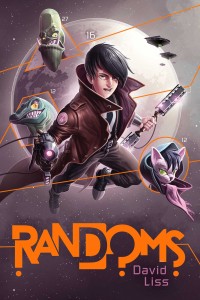 |
| Buy at Amazon, Barnes and Noble, or your independent book seller.
A science fiction superfan finds himself on his very own space adventure when he’s randomly selected to join an alien confederacy in this hilarious middle grade debut novel.Zeke Reynolds comes from a long line of proud science fiction geeks. He knows his games, comics, movies, and TV shows like Captain Kirk knows the starship Enterprise. So it’s a dream come true when he learns the science fiction he loves so much is based on reality—and that he’s been selected to spend a year on a massive space station. To evaluate humanity’s worthiness, the Confederation of United Planets has hand picked three of Earth’s most talented young people—and then there’s Zeke. He’s the random.
Unfortunately, Zeke finds life in space more challenging than he’d hoped. When he saves his transport ship from a treacherous enemy attack, he’s labeled a war criminal. Now despised by the Confederation, rejected by his fellow humans, and pursued by a ruthless enemy, Zeke befriends the alien randoms: rejected by their own species, but loyal to each other. But their presence in the Confederation may not be so random after all, and as the danger increases, Zack’s knowledge of science fiction might be the only thing that can save himself, his friends, and Earth itself.
•”Funny, wild, possibly deranged, and way too much fun.” – Jonathan Maberry, New York Times bestselling author of The Orphan Army and Rot & Ruin
•”As fun as a barrel full of tribbles, Randoms is middle-grade space opera at its best. Scary aliens! Cat people! Exploding starships! My inner geek stood up and cheered. Kids who love sci-fi, comics, or gaming will gobble up this fast-paced story, and it will make converts out of the rest.” – Pete Hautman, National Book Award Winner
•”What an adventure! Randoms has such a clever concept behind it, and it’s thrilling to ride along as Zeke Reynolds battles enemy aliens (and humans), buddies up with up with aliens (and even, sometimes, humans), and manages again and again to score his own version of victory for underdogs and ‘randoms’ all across the universe.”– Margaret Peterson Haddix, author of the New York Times bestselling series The Shadow Children and The Missing
•”Randoms is an incredibly fun and heartfelt space adventure. With menacing villains and lovable underdogs, this book has so much to offer readers of all ages. I can’t wait to read what happens to Zeke and his friends next!” – SJ Kincaid, author of Insignia
•”A smorgasbord of sci-fi geekiness, David Liss’s Randoms blends angst, adventure, humor, pathos, space battles, anime, giraffe aliens, and philosophical meanderings on the nature of humanity into a plot that twists and tumbles towards a breathless summer-action-flick finale. Be prepared to cheer on the underdogs in this dizzying romp of a novel.” – John David Anderson, author of Sidekicked
•”My fellow geeks, rejoice! We have a new hero in the form of the all-nerdy, all-knowing, Zeke. And it is no random chance that his knowledge of pop sci-fi makes him the hippest hero of the galaxy.” – Tony DiTerlizzi, author of The Search for Wondla
•”Like Spider-Man, Zeke has superpowers, but his power is his geekiness. … the aliens feel genuinely–and wonderfully–alien.” – Kirkus Reviews
•”Liss’s characters are engaging, the video-game-like competitions and SF commentary are fun, the sheer plenitude of alien species is fascinating, and the jokes just keep on coming.” – Publishers Weekly
|
Posted in Uncategorized | Comments Off on Now on sale: RANDOMS
Sunday, March 15th, 2015
What is going on in 2015? Behold!
I’ll be updating more regularly come this summer, but in the meantime, here is a quick run-down of my publications for the year. There are a few more surprises in the works, but this is everything I am physical, and legally, able to talk about at this precise moment.
Remember, for more up-to-the-minute information — plus a lot of nonsensical trivia — be sure to follow me on Twitter and Facebook.
| Available Now |
|
| THE SHADOW NOW One of the greatest pulp heroes of all time, brought into the modern world. This trade paperback collects all six issue, featuring art by the amazing Colton Worley. |
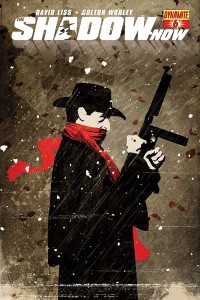 |
| OUT OF TUNE This collection of short fiction, edited by Jonathan Maberry, features original tales of suspense and dark fantasy based on folk ballads. My story, “Sweet William’s Ghost,” is inspired by the ballad of the same name. |
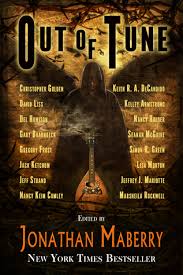 |
| SUMMER 2015 |
|
| PALEO June. Published by JournalStone, this novella is part of the DoubleDown series, which pairs works by established writers with emerging authors. This novella, about a down-on-his-luck middle-aged man who discovers the benefits of worshipping caveman sprits, is paired with “The Doomday Prepper” by Eileen Curtright. |
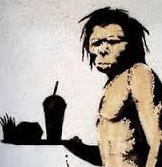 Placeholder Image. Real cover coming soon. Placeholder Image. Real cover coming soon. |
| RANDOMS August 25th. My big release for the year. The first book in a science fiction series aimed at readers 10 and up. “As fun as a barrel full of tribbles, Randoms is middle-grade space opera at its best. Scary aliens! Cat people! Exploding starships! My inner geek stood up and cheered. Kids who love sci-fi, comics, or gaming will gobble up this fast-paced story, and it will make converts out of the rest.” (Pete Hautman, author of National Book Award Winner Godless). For the record, the adults who have read it have responded with an unprecedented enthusiasm. Grownups who enjoyed Ready Player One by Ernest Cline or Red Shirts by John Scalzi should check it out. |
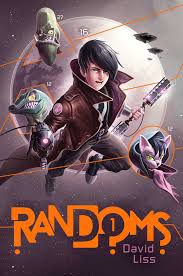 |
| AUTUMN 2015 – JEWISH NOIR. September 1stEdited by the most excellent Kenneth Wishnia. The title pretty much says it all. It includes my short story, “Jewish Easter.” |
 |
| THE DAY OF ATONEMENT. Exact date to come. The paperback edition. Called one of the best books of the year by The Seattle Times. |
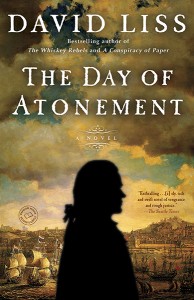 |
| SHERLOCK HOLMES: MORIARTY LIVES. Exact date to come. Collecting all five issues of the minis-series. After his presumed death in Switzerland, the notorious villain washes ashore in a town ruled by a man more evil and bloodthirsty than Professor Moriarty. It’s bad-guy vs. bad-guy. |
 |
| X-FILES ANTHOLOGY Exact date and title to come. The second volume of original X-Files short stories, edited by Jonathan Maberry. This volume will include my story, “Pilot.” |
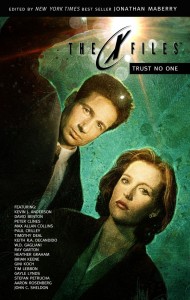 |
| ANGELICA TOMORROW Exact date to come. The trade paperback collecting all six issues of my first creator-owned series, featuring art by Allen Byrnes. It’s your classic teenage, alcoholic paraplegic meets amnesiac cyborg assassin story – but with a twist! |
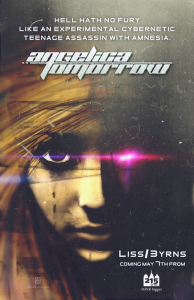 |
Posted in Uncategorized | Comments Off on Everything David Liss in 2015
Wednesday, May 7th, 2014

BUY THIS NOW!
Angelica Tomorrow is my first creator-owned comic. Artist Allen Byrns and I created this story and we own it, and now we want you to read it. So go do that. It only costs $1.99 so the risk to your happiness is minimal. Right now the first issue is available digitally from Comixology. When the six-issue run is finished, we’ll be putting out a trade paperback.
It’s a classic tale of teenage, paraplegic alcoholic meets amnesiac cyborg assassin! Three years ago, George Williams life changed forever when a car accident left him paralyzed below the waist. Now, everything will change again after a nighttime encounter with deadly stranger who possesses incredible powers she cannot recall or understand. Only George knows that beneath the shell of the sweet and naïve girl lies a monster, but which is the real Angelica, and how long can George keep the killer hidden way? Pursued by ruthless spies, and a police officer seeking revenge, George and Angelica will find themselves tested in ways they never imagined.
I’m in the process of getting doing some updating on the web page so if you want information on my next novel, The Day of Atonement, which will be out in September, click here.
Posted in Uncategorized | Comments Off on Angelica Tomorrow #1 is here!
Tuesday, May 6th, 2014
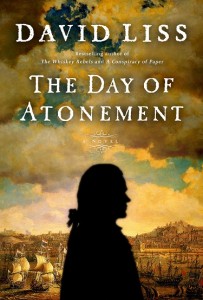 In 1745 the Portuguese Inquisition came for Sebastião Raposa’s parents. While his mother and father died in the prisons beneath the Palace of the Inquisition, young Sebastião was smuggled out of Portugal. Now, ten years later, he returns to the city he hates, disguised as an English merchant, with one purpose in mind: find the priest who destroyed his parents and exact vengeance. But Sebastian Foxx will learn that Lisbon is no less treacherous than when he left, and soon he is embroiled in schemes plotted by friends and enemies alike — and it will become increasingly difficult to tell the difference. In 1745 the Portuguese Inquisition came for Sebastião Raposa’s parents. While his mother and father died in the prisons beneath the Palace of the Inquisition, young Sebastião was smuggled out of Portugal. Now, ten years later, he returns to the city he hates, disguised as an English merchant, with one purpose in mind: find the priest who destroyed his parents and exact vengeance. But Sebastian Foxx will learn that Lisbon is no less treacherous than when he left, and soon he is embroiled in schemes plotted by friends and enemies alike — and it will become increasingly difficult to tell the difference.
Pre-order now. It’s what the cool kids are doing.
Amazon
Barnes & Noble
IndieBound
Posted in Uncategorized | 1 Comment »
Monday, July 25th, 2011
Now in Paperback!
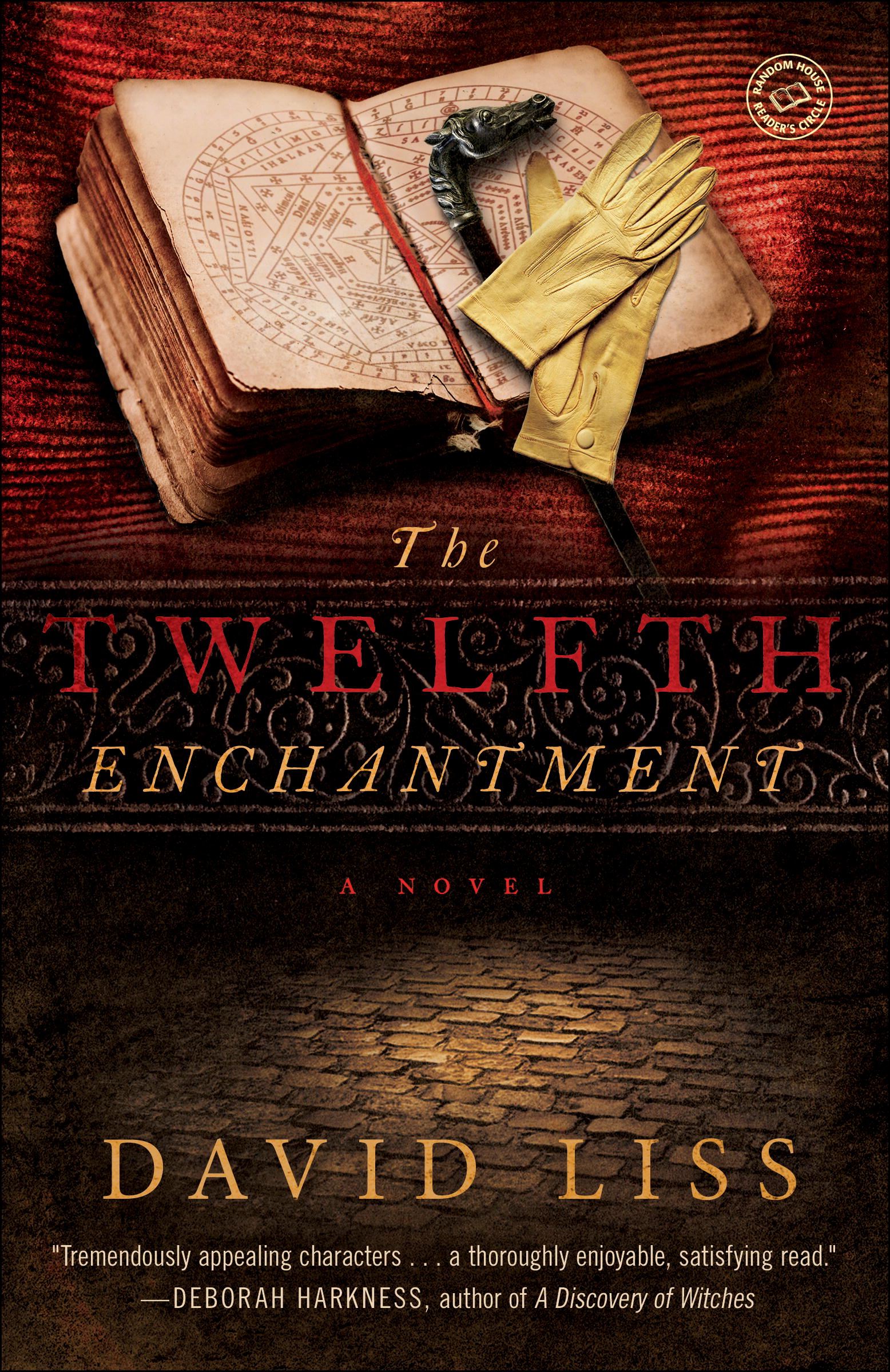
Tremendously appealing characters . . . a thoroughly enjoyable, satisfying read.”—Deborah Harkness, author of A Discovery of Witches
Lucy Derrick is a young woman of good breeding and poor finances. After the death of her beloved father, she is forced to maintain a shabby dignity as the unwanted boarder of her tyrannical uncle, fending off marriage to a local mill owner. But just as she is on the cusp of accepting a life of misery, events take a stunning turn when a handsome stranger—the poet and notorious rake Lord Byron—arrives at her house, stricken by what seems to be a curse, and with a cryptic message for Lucy. Suddenly her unfortunate circumstances are transformed in ways at once astonishing and seemingly impossible.
With the world undergoing an industrial transformation, and with England on the cusp of revolution, Lucy is drawn into a dangerous conspiracy in which her life, and her country’s future, are in the balance. Inexplicably finding herself at the center of cataclysmic events, Lucy is awakened to a world once unknown to her: where magic and mortals collide, and the forces of ancient nature and modern progress are at war for the soul of England . . . and the world. The key to victory may be connected to a cryptic volume whose powers of enchantment are unbounded. Now, challenged by ruthless enemies with ancient powers at their command, Lucy must harness newfound mystical skills to prevent catastrophe and preserve humanity’s future. And enthralled by two exceptional men with designs on her heart, she must master her own desires to claim the destiny she deserves.
Posted in Uncategorized | Comments Off on
Wednesday, June 1st, 2011
We’ve got an action-packed summer and autumn planned for you over here at davidliss.com, so here’s a handy score card to help you keep track of onslaught of David Liss mayhem.
June
Mystery Men #1 – #2
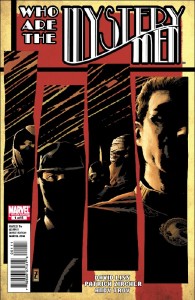 The first two issues of this five-part miniseries will ship in June. Telling, for the first time, the story of Marvel’s earliest generation of costumed vigilantes in New York, this is a dark, pulp-era mystery set firmly within – but requiring no previous knowledge of – the Marvel U. 1932, guys in cool hats, a dead Broadway starlet, an insidious plot, evil capitalists, and a dark plot against the country. Five heroes will rise to protect America in its darkest hour. This is a perfect series to follow for readers who have been interested in my comics but haven’t known where to jump in. This preview will give you a good sense of Patrick Zircher’s amazing art. The first two issues of this five-part miniseries will ship in June. Telling, for the first time, the story of Marvel’s earliest generation of costumed vigilantes in New York, this is a dark, pulp-era mystery set firmly within – but requiring no previous knowledge of – the Marvel U. 1932, guys in cool hats, a dead Broadway starlet, an insidious plot, evil capitalists, and a dark plot against the country. Five heroes will rise to protect America in its darkest hour. This is a perfect series to follow for readers who have been interested in my comics but haven’t known where to jump in. This preview will give you a good sense of Patrick Zircher’s amazing art.
Black Panther: The Man Without Fear #519 – #520
Storm Hunter! A two-part, self contained story with both issues shipping this month. It’s the T’Challa, the most dangerous man alive vs. Kraven, the deadliest hunter in the Marvel U. Plus Storm. A great place to jump into the unfolding Black Panther saga. Very cool art by Jefte Palo, which you can see here.
July
Black Panther: The Man Without Fear #521
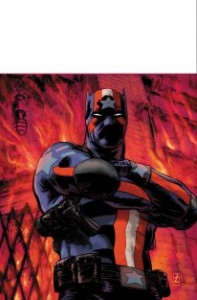 The events of marvel’s big summer event, Fear Itself, catch up with Black Panther as a 3-part story begins in which we introduce the American Panther. Marvel has teased this storyline, but we’ve said very little. You’ll have to pick up the issue to learn more, though you can take a look at this teaser article if you enjoy, you know, being teased. The events of marvel’s big summer event, Fear Itself, catch up with Black Panther as a 3-part story begins in which we introduce the American Panther. Marvel has teased this storyline, but we’ve said very little. You’ll have to pick up the issue to learn more, though you can take a look at this teaser article if you enjoy, you know, being teased.
Mystery Men #3
The mystery continues!
Black Panther: The Man Without Fear Urban Jungle
If you missed our first arc of Black Panther, you can pick up this trade paperback which collects the first six issues. It makes for great summer reading.
August
The Twelfth Enchantment
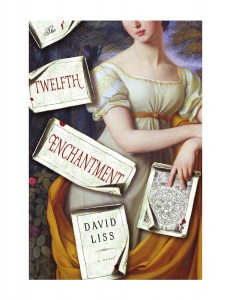 My new novel! Set during the Regency and the Luddite Uprising, the first organized resistance to the industrial revolution. Think Jane Austen meets urban fantasy. Lucy Derrick, an impoverished woman on the cusp of a disastrous marriage is drawn into a mysterious plot in which new technology wars with ancient knowledge. Lord Byron, William Blake and Mansfield Park’s Mary Crawford! I had a blast writing this one. My new novel! Set during the Regency and the Luddite Uprising, the first organized resistance to the industrial revolution. Think Jane Austen meets urban fantasy. Lucy Derrick, an impoverished woman on the cusp of a disastrous marriage is drawn into a mysterious plot in which new technology wars with ancient knowledge. Lord Byron, William Blake and Mansfield Park’s Mary Crawford! I had a blast writing this one.
Black Panther: The Man Without Fear #522
Our Fear Itself and American Panther story continues.
Mystery Men #4
The mystery continues again!
September
Black Panther: The Man Without Fear #523
The conclusion of our Fear Itself tie-in.
Mystery Men #5
The saga comes to a thrilling conclusion.
The Monster’s Corner: Stories Through Inhuman Eyes edited by Christopher Golden
An anthology of stories about (non-vampire or zombie) monsters, told from their perspective. My story, “The Awkward Age,” is about a sexy ghoul. This is of particular interest to those who liked my story, “What Masie Knew,” which appeared in Chris’s anthology, The New Dead.
October
Assassins: Sword of the Apocalypse
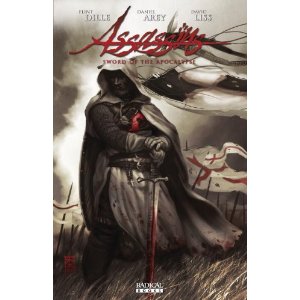 My second full-lenth book of the year! This is an illustrated novel that is being published by comics indie, Radical. It’s the Third Crusade and an ancient evil brings together an unlikely band of heroes: King Richard the Lionheart, Saladin, Robert of Locksley (the future Robin Hood), Temujin (the future Genghis Khan), Morgiana (of the Ali Baba story) and Moses Maimonides. This is fun historical fantasy with amazing art. My second full-lenth book of the year! This is an illustrated novel that is being published by comics indie, Radical. It’s the Third Crusade and an ancient evil brings together an unlikely band of heroes: King Richard the Lionheart, Saladin, Robert of Locksley (the future Robin Hood), Temujin (the future Genghis Khan), Morgiana (of the Ali Baba story) and Moses Maimonides. This is fun historical fantasy with amazing art.
Black Panther
I can’t tell you exactly what we’re doing this month because it has not yet been announced, but I’m very proud of this script, and I think you guys are going to dig this.
Posted in Uncategorized | Comments Off on
|



















 My second full-lenth book of the year
My second full-lenth book of the year